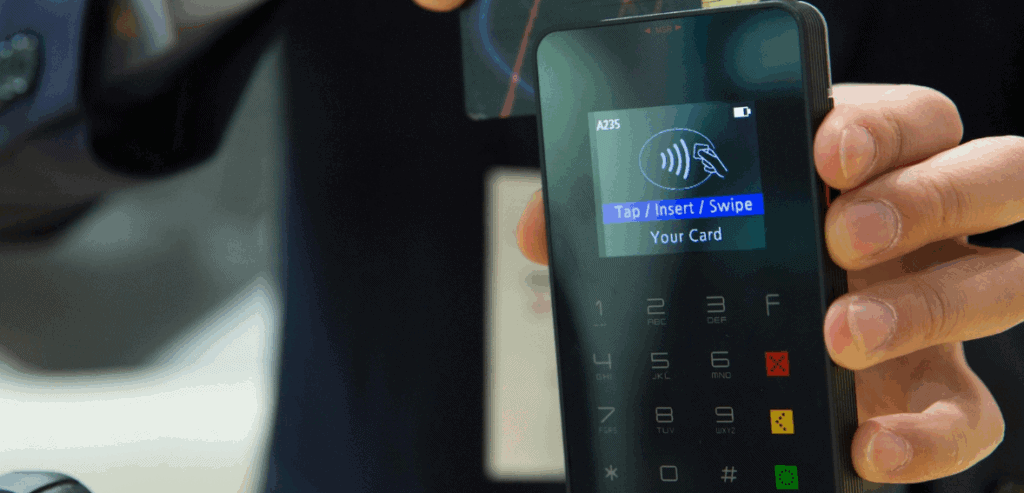
By Sharon Hudson July 9, 2025
In the boutique hospitality industry, guest experience is everything. Personalized service and charming design often set smaller hotels apart from the mainstream. But beneath the surface, outdated payment systems in boutique hotels silently erode efficiency, guest satisfaction, and profitability. While many hoteliers invest in ambiance and service, their legacy tech lags behind—creating hidden costs that build over time.
Many boutique hotel owners focus heavily on service and design while allowing older payment systems to remain in place. Whether due to cost concerns, lack of technical know-how, or resistance to change, this oversight can lead to serious consequences. What may seem like a small inconvenience—slow card machines, limited digital options, or clunky front desk terminals—actually carries significant costs.
The Guest Experience Gap
A boutique hotel thrives on first impressions and lasting memories. But even the most charming property can leave guests frustrated if their payment experience is slow or unreliable. In today’s digital-first world, convenience is no longer optional—it is expected.
Long Waits at Check-In and Check-Out
An outdated payment system often creates bottlenecks at the front desk. If terminals are slow to process transactions or staff have to enter data manually, check-in and check-out become time-consuming. This not only inconveniences the guest but can also lead to operational delays for staff.
Imagine a guest arriving late at night only to face a slow card authorization process. Or a traveler in a rush being delayed by a broken terminal. These moments damage the otherwise carefully curated guest experience.
Lack of Digital Payment Options

Travelers today expect to use mobile wallets, tap-to-pay, and even QR-based systems. When these options are not available, especially for international guests used to cashless systems, it creates friction. Guests may feel inconvenienced or concerned about the safety of sharing card details manually.
The absence of digital payment flexibility often signals that a hotel is behind the times. This can reduce trust and make guests less likely to return or recommend the property.
Lost Revenue Opportunities
While outdated systems might not appear to cost money upfront, they can lead to missed revenue in subtle but powerful ways. In boutique hospitality, where margins are tight and every upsell matters, this hidden cost can be significant.
Fewer Upsell Conversions
Upselling is a key part of hospitality revenue. Offering a room upgrade, spa session, or wine pairing can increase spend per guest. But if your payment system cannot process add-ons smoothly or quickly during check-in, guests are less likely to say yes.
Slow systems reduce spontaneity. Guests hesitate to make impulse purchases when the process feels clunky or requires a manual transaction. A modern system that supports instant payments and digital prompts is more likely to convert interest into action.
No Support for Dynamic Pricing
Many modern property management systems offer dynamic pricing tools that sync with payment platforms. Outdated systems typically require manual updates, preventing you from reacting to demand changes or offering real-time promotions. This inflexibility leads to lost income, especially during peak seasons.
High Transaction Fees
Older terminals often use legacy payment processors with outdated contracts. These agreements may come with higher transaction fees, monthly minimums, or unnecessary service charges. Over time, these costs can add up and eat into profits.
By switching to a modern system with transparent pricing, hotels can save significantly—even if the hardware investment seems higher at first.
Operational Inefficiencies
Behind the scenes, outdated payment systems can disrupt daily operations in multiple ways. These disruptions aren’t always obvious, but they reduce productivity and increase stress for hotel staff.
Manual Reconciliation and Accounting Errors
With older systems, financial reporting is often a manual process. Staff must reconcile transactions at the end of each shift or day, sometimes by cross-checking receipts or running batch reports. This leaves room for human error and takes up valuable time.
Modern systems automate reconciliation by syncing payments in real time with your property management or accounting software. This reduces end-of-day stress and gives managers better oversight of revenue streams.
Frequent System Downtime

Legacy hardware is more prone to malfunctions. A failing card reader or frozen terminal can halt check-ins, delay services, and frustrate both guests and staff. Repairs and maintenance may also take longer because older parts are harder to source or service.
Frequent downtime not only disrupts business flow but also leads to negative reviews and staff burnout. When the front desk becomes a tech support center, service quality drops.
Security and Compliance Risks
Older systems often fall short on current data protection standards. They may lack encryption, tokenization, or secure data storage, exposing both the hotel and its guests to risk. Compliance with standards like PCI DSS becomes harder without up-to-date technology.
A security breach involving payment data can be disastrous. Beyond the immediate financial loss, the damage to brand trust can be long-lasting. Boutique hotels, which rely on word-of-mouth and repeat customers, are especially vulnerable.
Staff Morale and Training Burden
The employee experience often mirrors the guest experience. When staff are forced to deal with clunky or unreliable tools, their job becomes harder. This impacts morale and can lead to higher turnover, especially in small teams where every person is critical.
Frustration with Daily Tasks
If your front desk staff have to restart terminals, reprocess payments, or switch between multiple systems for one task, it creates daily friction. Over time, this frustration accumulates and affects performance. Staff may struggle to maintain the warm and welcoming atmosphere your guests expect.
More Training, Less Impact
Outdated systems often have complex workflows that require in-depth training. New hires must learn outdated procedures that don’t translate to other modern workplaces. This increases onboarding time and decreases operational flexibility.
Modern systems are often more intuitive, reducing the learning curve and helping new employees contribute faster. With better tools, staff are more likely to stay engaged and deliver excellent service.
Guest Trust and Security Concerns
Payment is one of the most sensitive parts of any transaction. Guests want to feel that their financial information is handled with care. An outdated system can signal the opposite.
Lack of Encryption
Older systems may not support modern encryption standards. This means guest card details might be stored in vulnerable formats or transmitted without adequate protection. Even if no breach occurs, the perception of insecurity can be damaging.
Guests who see staff writing down card numbers, using outdated swipe terminals, or manually inputting data may lose confidence in the property’s professionalism.
Negative Online Reviews
Security concerns, slow check-ins, and billing errors often make their way into online reviews. Even a few negative posts about payment issues can deter future guests. In the boutique segment, where booking decisions are often influenced by review platforms, this impact is magnified.
By modernizing payment processes, hotels can prevent these issues and reinforce their commitment to guest safety and satisfaction.
Integration Gaps with Modern Tools

In today’s hotel landscape, everything is interconnected. Your payment system should talk to your booking engine, property management software, CRM, and marketing tools. When payment systems are outdated, integration becomes a roadblock.
Incompatibility with PMS and Booking Engines
Many legacy systems are not designed to work with modern cloud-based platforms. This forces hotels to use workarounds or maintain parallel systems, which increases complexity and risk. For example, if your booking system doesn’t sync with your payment processor, guests might face double charges or missing records.
Modern systems offer APIs and built-in integrations that streamline processes across departments. This creates a unified view of the guest journey and helps you deliver a better experience from pre-booking to post-checkout.
Missed Marketing Opportunities
Without integration, it’s harder to collect and use payment data for marketing. Hotels lose visibility into guest spending patterns, missed upsell opportunities, and repeat guest behavior. This limits the ability to personalize offers, build loyalty programs, or send targeted follow-ups.
In contrast, integrated payment platforms feed real-time data into CRM systems. This allows marketing teams to tailor offers and improve conversion rates across channels.
The Cost of Inaction
Many boutique hotels delay upgrading their systems due to budget constraints or fear of disruption. But inaction carries its own cost. The longer a property uses outdated payment technology, the more it risks falling behind guest expectations and industry standards.
Compounding Losses
The financial impact of lost upsells, higher transaction fees, and operational inefficiencies builds over time. What seems like a one-time inconvenience becomes a recurring loss. Add to this the reputational cost of guest dissatisfaction, and the true expense of outdated systems becomes clear.
Difficulty Catching Up Later
Delaying modernization also makes future upgrades more difficult. As software vendors sunset older systems and hardware becomes obsolete, the effort required to switch increases. Staff may resist change more strongly after years of using a legacy system.
Taking action now allows boutique hotels to phase in upgrades gradually, train staff at a manageable pace, and prepare for future innovations like mobile check-in or digital tipping.
Choosing the Right Payment Solution
Not all modern systems are created equal. Boutique hotels need payment solutions that align with their unique needs. Flexibility, scalability, and ease of use are key.
Look for Hospitality-Focused Providers
Choose a provider that understands the needs of boutique and independent properties. Hospitality-specific platforms often include features like automatic incidentals billing, room charges, and tipping options.
Prioritize Integration and Compliance
Ensure the solution integrates with your current PMS or booking engine. Also verify that the system is PCI-DSS compliant and offers encryption, tokenization, and fraud prevention tools.
Consider Guest Experience First
Think about the guest’s perspective. Does the solution offer mobile check-in? Can guests pay with Apple Pay or Google Pay? Can you easily send digital receipts or process refunds? A payment platform should enhance—not interrupt—the guest journey.
Conclusion
Outdated payment systems in boutique hotels might seem harmless on the surface, but they are quietly costing properties time, money, and reputation. From operational bottlenecks and staff frustration to missed revenue and security risks, the consequences add up quickly. In a segment where the guest experience is the core differentiator, payment should not be a pain point. Instead, it should be an opportunity to impress, simplify, and build trust.
Modern payment systems are not just about tech—they are about aligning your hotel’s back office with the front-line service you pride yourself on. Upgrading from outdated payment systems in boutique hotels may seem like a challenge, but the rewards are substantial. With better tools, you empower your staff, delight your guests, and future-proof your business. In today’s hospitality landscape, that is a cost you can’t afford to ignore.